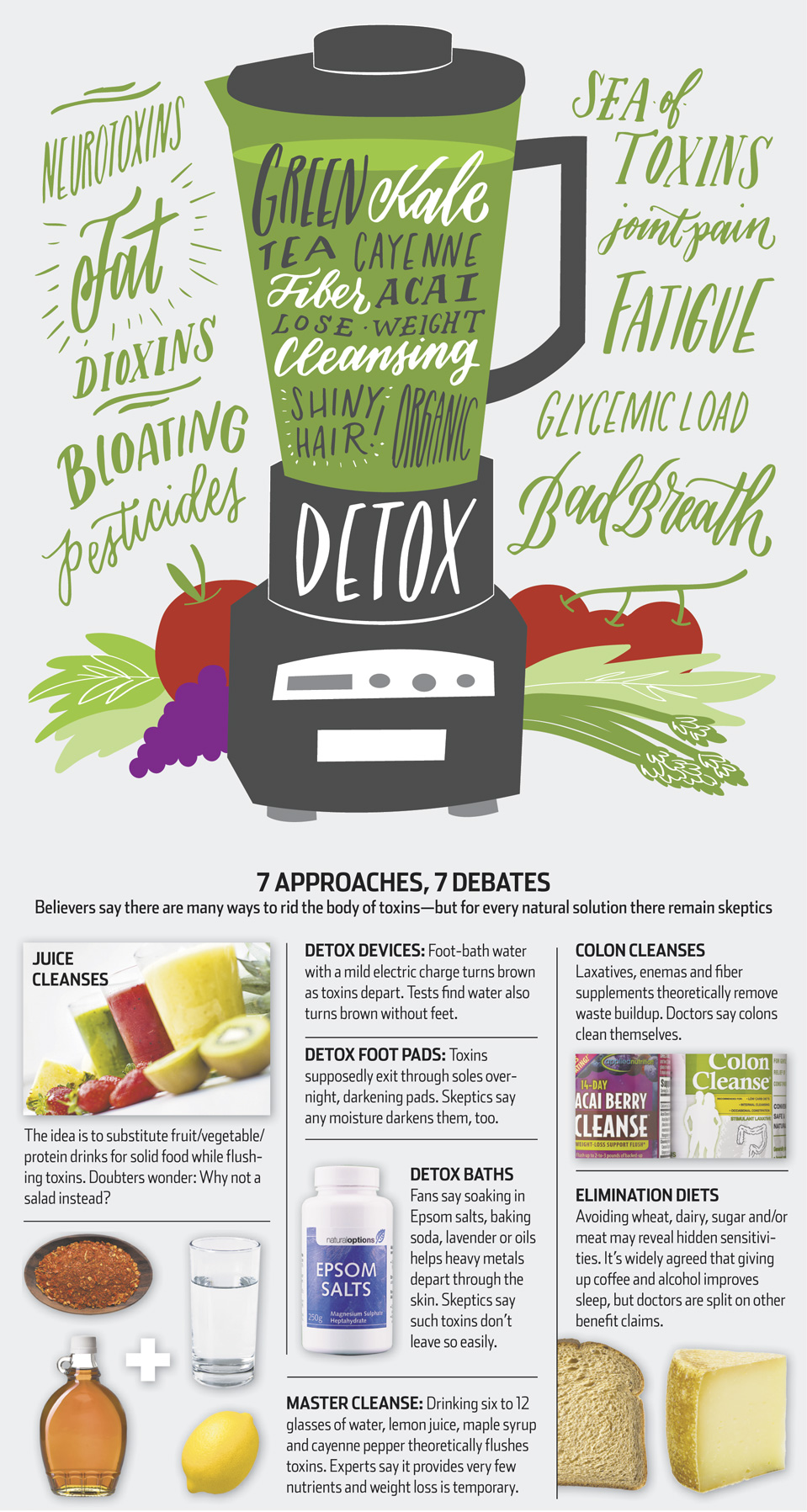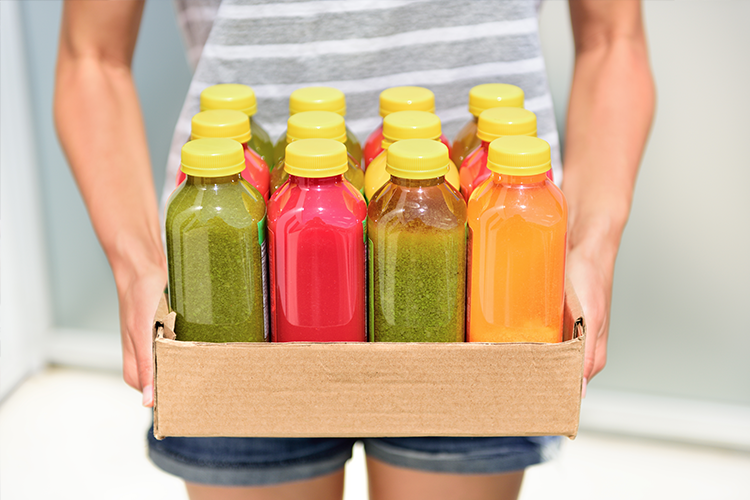Blog
To cleanse or not to cleanse? Delving into the juice fast
Touted by some as a kick-ass health re-boot and weight loss tool, juice fasting is rising in popularity, among celebrities and the rest of us.
However, weight gain and loss, and impact of dietary choices on metabolism is complicated and may vary from person to person. Hence why science and the healthcare system are still struggling to agree on an optimal diet for the population!
But is there cred behind the health claims for living on juice for an extended period of time?
Why cleanse?
People have a variety of reasons for wanting to embark on a juice cleanse. These can include:
- Increase energy
- Eliminate toxins
- Lose weight
- Decrease bloating.
It is believed the digestive tract gets a break, and micronutrients are more easily available and absorbed, boosting intake. However, some of those nutrients, like vitamins A, D, and E, are fat soluble, so you need to eat fat to absorb those.
Living on juice alone is not safe – and rarely do people advocate this extreme! A juice only diet lacks critical macronutrients such as fats and fibre, needed for hormone synthesis, brain function and to feed our gut bugs.
What we must consider is the high intake of sugars from juices, which are concerning for the liver, teeth and gums, and blood glucose levels, especially if one decides to survive on juice for as long as 30 days!
If you are considering a juice cleanse or fast, which commonly last 3-7 days, this may be less detrimental undertaken short term.
However, science says (put your hands on your head. Joking!) that we are well equipped to detoxify – between our liver, kidneys and poop we are pretty sorted.
Granted, we are exposed to all manner of toxins, some not seen in previous decades; so there may very well be increased toxic load. However there are many choices we can make to help mitigate this – but they involve changing what we do and eat every-single-day. A fundamental change of habit. That doesn’t sound quite as easy as a 3-day juice cleanse, does it?
I still want to juice fast, dammit!
Okay, cool. You want to give it a go. You have heard so many rad things about it – weight loss, clear mind, reduced appetite! So, why not?
Perhaps you first might need to consider what is driving you to undertake such a regime? And when done, are able to change any poor eating habits, level of exposure, or behaviours that got you into the place where you felt they needed to cleanse in the first place?
Cleanse cure all vs switching up old habits
Consider some things in our lives that increase burden to the body, such as:
- Stress
- Pesticides
- Heavy metals and chemicals
- Excess packaged and processed foods
- Excess alcohol, smoking and drugs
- Medications
- Trauma – physical and emotional
- Radiation
- Lack of sleep.
Without a doubt our body contends with a lot. But if these things are a part of our everyday lives, will a living on juice for a handful of days really deal with the original problem, which is the habits and exposure to things increasing the burden on the body’s detoxification systems?
In order for the body to operate at it’s very best, we could unlearn some not-so-helpful habits, and mitigate or reduce our exposure to substances that increase burden on the body. We could encourage habits, behaviours and actions that are more conducive to happiness and health, such as:
- Meditation
- Organic, local or homegrown foods
- Non-toxic beauty and cleaning products, use glass instead of plastic
- Eat only real, whole foods
- Limit or avoid alcohol, smoking and drugs
- Try to get to the root cause of your health condition that has you reliant on medications. Sometimes, improving health overall can reduce incidence of ailments and disease
- Treat trauma by seeking manual therapies and counseling
- Avoid having wireless devices in the bedroom, and limit daily exposure as much as possible
- Sleep 7-8 hours a day.
By encouraging positive choices and behaviour change, our body may not require a full-blown fast in order to detoxify.
Regardless, a fast beyond a day should be undertaken under supervision of a healthcare practitioner. They at least will ensure you cover a nutrient spectrum; limit the amount of fruit consumed (focusing largely on vegetables and greens); monitor blood glucose levels; and supply support for the critical time post-fast when old dietary habits can creep on in.
The conjecture
Each person has the freedom of choice to enhance health and wellbeing. It is true that perhaps we all eat too much, and could benefit from feeling hungry occasionally!
There is much debate over cleansing rituals circulating the world wide web (a little overview put together in this Wall Street Journal graphic).

Anecdotally, many people claim to have more energy and feel more alert following a fast or cleanse. They may even be fasting for medical reasons. However, the issue many have with juice cleanses is the lack of research supporting the proposed health benefits.
Cut the crap, dude!
If a liquid diet ain’t appealing, a cleanse or fast needn’t mean juice only! You could simply cut the crap and include real whole foods, that also include much needed fat and fibre.
Or look at intermittent fasting, like Michael Mosley’s 5:2 style. This may offer a physical and emotional break from food, enhance metabolism, and whilst giving the digestive organs what they need to operate optimally and serve you best. So long as you are helping your body and mind by eating nutritious whole foods!
But perhaps the best way to cleanse is to limit, or even avoid, processed foods, alcohol, soft drink and caffeine.
Replace refined, factory made foods with nutrient dense veg and fruit, good fats, some whole grain, and lean and/or plant based protein.
Easing on booze, soft drink, caffeine and excessive sugar can also improve sleep. Therefore, by increasing nutrient intake and getting adequate rest, you can assist your body in weight loss and detoxification.
Weight loss and detoxification
If you are considering a cleanse or fast for weight loss, intermittent fasting can offer a long-term change to eating habits, shifting the relationship with food which may be more beneficial than complete fasting (with or without juice) for longer than several days. After this time metabolism may begin to slow which may contribute to weight gain when food is re-introduced.
If detox is your aim, as mentioned, the body is well equipped to detox. Instead, support your kidneys by drinking water throughout the day, consume a mix of soluble and insoluble fibre for your colon, and eat and drink stuff that shows your liver some love, like leafy greens.
As always, we advocate that the majority of what you consume should comprise of real, whole foods, to nourish and support the body to operate at its best.
By Angela Johnson (BHSc Nut. Med.)












